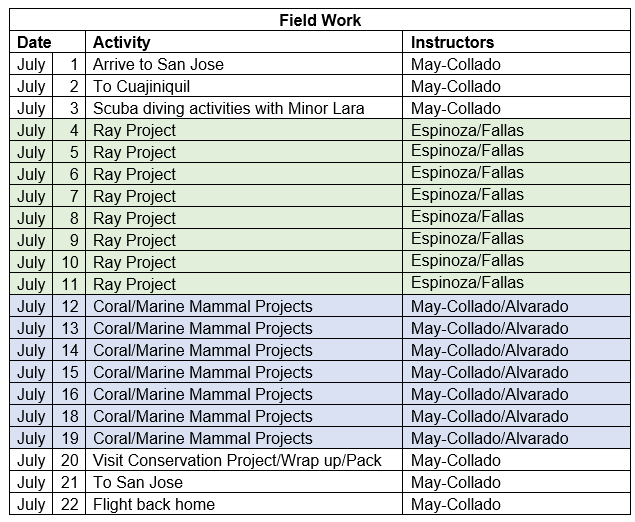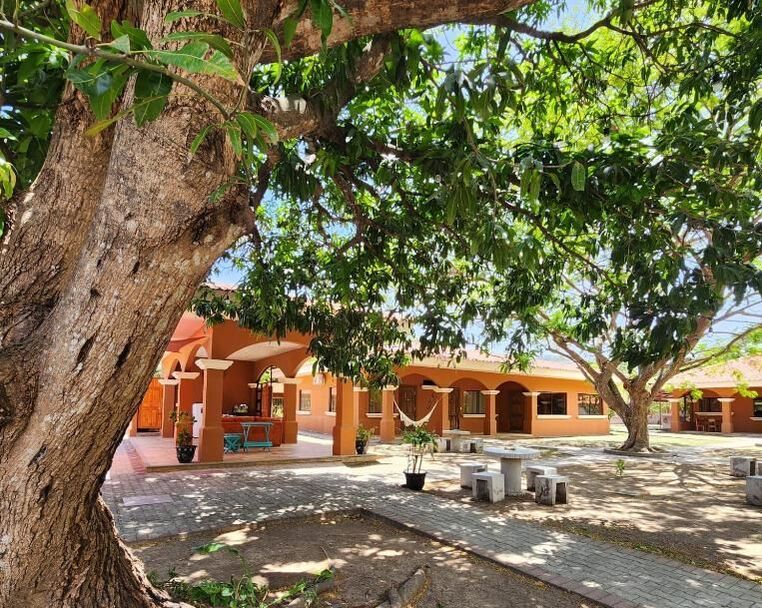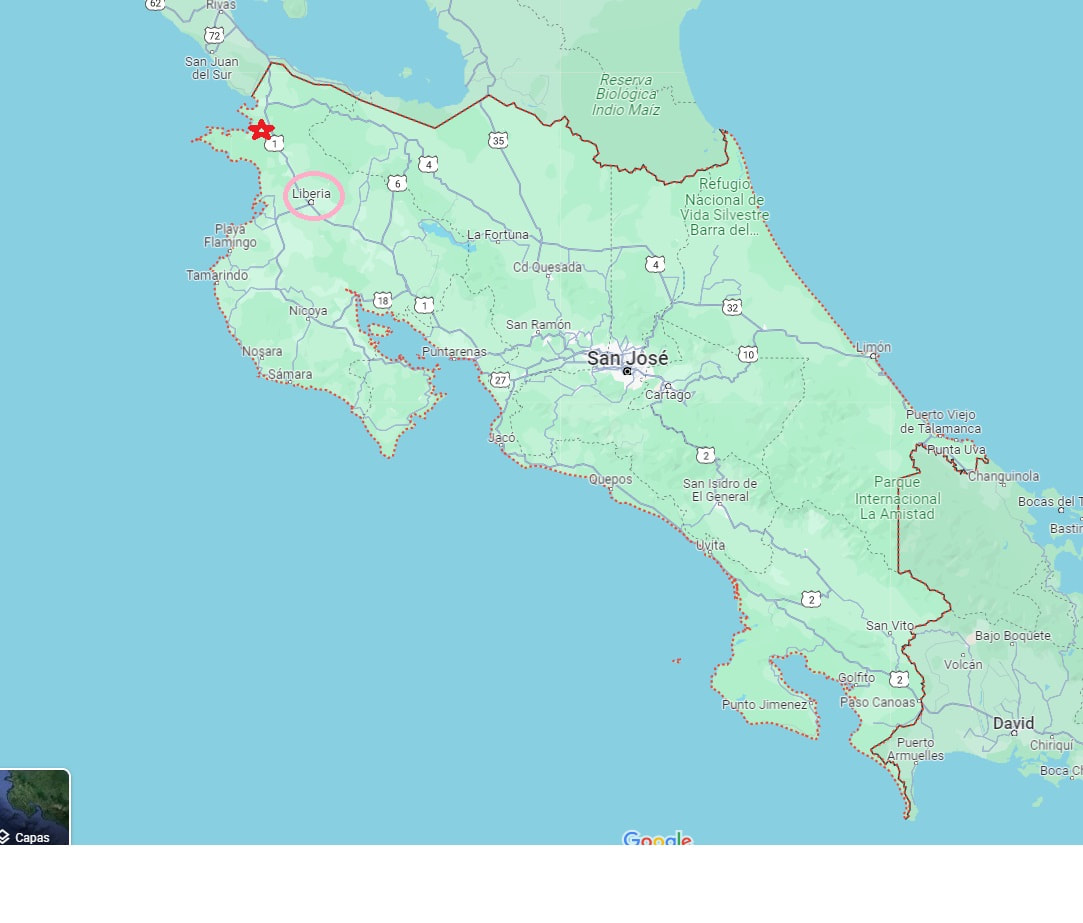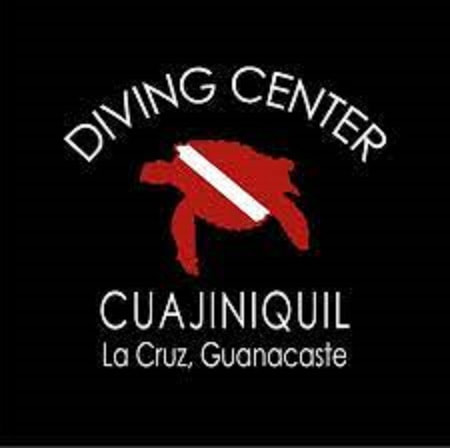IRES- Costa Rica 2024
Undergraduate students
Graduate Students
|
Remote Schedule coming soon!
|
Cuajiniquil, Guanacaste
|
We will be staying at Hacienda Casa del Viento in Cuajiniquil. This is only 5 minutes away from the port where our research boats will be waiting for us each day! This Hacienda is a great place used by other Universities in USA and in Costa Rica. We will likely meet students and researchers from other institutions! Here is a Facebook link to the Hacienda. We will be staying in one of the cabins with multiple bunk beds. Bathrooms are available within and outside the cabin and have doors that lock.
|
Cuajiniquil(stared) has access to supermarkets, restaurants, and public transport. The town is 45 minutes away from Liberia (circled) the major city in the Guanacaste Province, and where there is a hospital, banks, pharmacies, and other services. You will be flying from your selected airport to the Guanacaste Airport (LIR).
|
Diving Center Cuajiniquil is a local dive shop that has been collaborating with scientists since the late 1990s. Moreover, this diving shop is truly the definition of what local stakeholders are, and their impact in marine conservation, as their presence in the community has inspired many others to transition from fishing to tourism, thus promoting a better management and the conservation of key marine habitats and species in the region. This family also has many years of experience working closely together with US-based University Student Programs from California as described above. They have coordinated housing and field research opportunities for US students with local families in Cuajiniquil.
|




